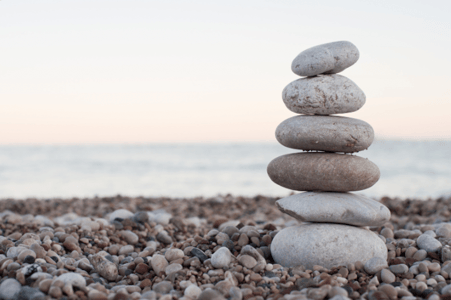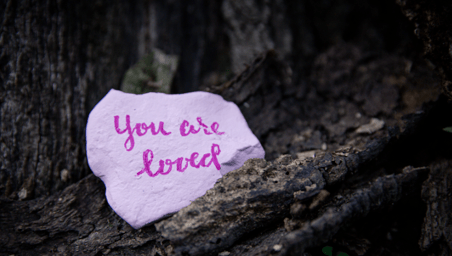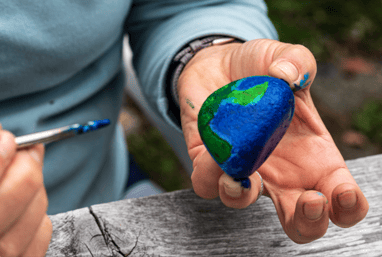A Jewish tradition that’s stood the test of time, placing stones on a loved one’s grave dates as far back as biblical times.
In fact, for thousands of years, people memorialized their loved ones by stacking stones—known as cairns—on top of their graves to mark the burial site and protect them from animals. Historically, Jewish families would also leave piles of rocks on graves to warn priests away, a tradition that stemmed from the idea that if a priest came within four feet of a lost loved one, he would make them impure.
While the exact origins of this custom are unclear, it’s still regularly practiced today—albeit, with several different meanings. Below, we explore five reasons families and friends place stones on their loved ones’ graves.
1. To Honor Their Religion
Today, people still place stones on graves for religious reasons. The Talmud, or code of Jewish religious law, says a person’s soul dwells in the grave where they’re buried. Because of this, visitors will place stones on graves to keep the departed “where they belong.”

The idea of keeping one’s soul anchored to this world also brings comfort to visitors, allowing them to feel that their loved one is nearby.
2. To Symbolize Their Visit
Many people leave stones on a loved one’s grave or memorial to mark their visit. The symbol of the stone can bring comfort to family and friends, letting them know their loved one has been visited, grieved and prayed for by others, too.

This also encourages a sense of community, letting families and friends know they aren’t the only ones missing and honoring their loved ones.
3. To Keep One’s Memory Alive
One reason people choose to place stones, rather than real flowers, on a gravestone or memorial is that stones last forever. While flowers eventually wilt and die—a metaphor for life itself—a stone represents a loved one’s memory and legacy lasting forever.

Stones on graves may also serve as a symbol of your loved one or a memory you had with them. For instance, if your loved one enjoyed walking in the local park, a visitor might choose a stone from that park. If you and your loved one went on an annual beach vacation, you might leave a stone from the beach you visited. Some people also leave birthstones to represent their loved ones.
4. To Leave Letters or Photographs
Many people find comfort and healing in writing notes to their lost loved ones and leaving them on their gravestones or memorials. Some even leave photographs of happy memories like family vacations, concerts and gatherings with friends. Stones are placed on these items to protect them and ensure they don’t blow away.

Even if a visitor doesn’t leave anything, stones on graves still serve as a symbol of communication with departed loved ones.
5. To Share a Message
It’s also common for people to leave stones with engravings or decorations on them for their departed loved ones. The stones may contain personalized messages, Bible verses, poems and more. These messages can hold deep meanings or represent the relationship you had with your loved one. For example, you may choose to engrave a lyric from a song you both loved.


People who decorate or paint stones themselves also use the project as a way to heal, accept the passing, and share a message with their loved one.
Learn More About Cemetery Symbolism
Although it’s interesting to learn the history behind cemetery symbolism, it’s important to understand that what you place at a loved one’s memorial is completely up to you.
If you’re interested in learning more about cemetery symbolism or memorialization options, subscribe to our blog and receive resources directly in your inbox.



